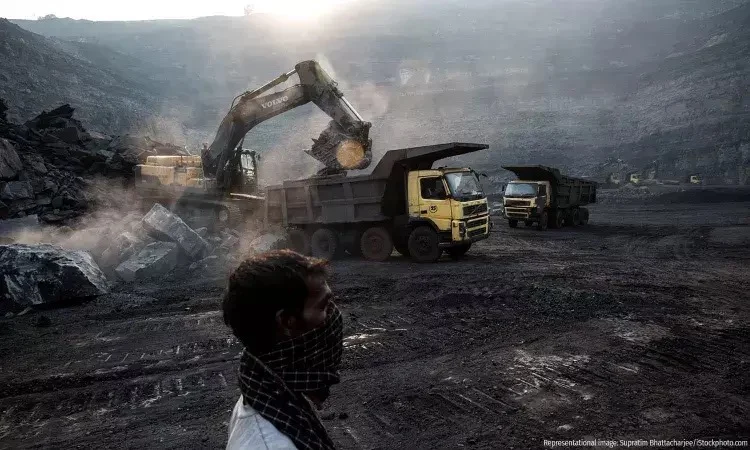As Jharkhand forges ahead with the opening of new coal mines, promises of a just transition remain elusive, leaving communities in limbo and environmental concerns unaddressed.
RANCHI- Amidst the rolling hills and dense forests of Jharkhand, a state known for its rich mineral resources, the coal industry stands as a symbol of both prosperity and controversy. With a history deeply entrenched in coal mining, Jharkhand’s trajectory has been shaped by promises of development and the harsh realities faced by its people.
In recent years, the state has witnessed a push towards opening new coal mines, purportedly to fuel economic growth and meet the nation’s energy demands. However, this push comes at a cost, as existing mines continue to operate, leaving behind a trail of environmental degradation and social upheaval.
Despite pledges to prioritize a just transition away from coal, the ground reality tells a different story. While the government touts job creation and infrastructural development, communities living in the shadow of coal mines experience displacement, health hazards, and loss of livelihoods.
“We were promised a better future, but all we see is our land being snatched away,” laments Ramesh Singh, a resident of a village near a newly opened coal mine. His sentiments echo those of many others whose voices often go unheard amidst the clamor for progress.
Critics argue that the emphasis on expanding the coal industry undermines efforts towards sustainable development and climate action. With coal being a major contributor to greenhouse gas emissions, the continued reliance on this fossil fuel further exacerbates the climate crisis, posing long-term risks to both the environment and human health.
While proponents of coal mining highlight its role in powering industries and driving economic growth, the broader implications are often overlooked. The adverse effects on air and water quality, loss of biodiversity, and disruption of local ecosystems paint a grim picture of the true cost of coal.
As the world moves towards renewable energy sources and green technologies, Jharkhand finds itself at a crossroads. The decision to prioritize short-term gains over long-term sustainability raises questions about the state’s commitment to its people and the planet.
“We cannot afford to ignore the environmental and social consequences of our actions,” asserts environmentalist Priya Gupta. “It is time for policymakers to rethink their approach and invest in cleaner, more sustainable alternatives.”
The path to a just transition requires bold leadership, informed decision-making, and genuine engagement with affected communities. It entails not only phasing out coal but also investing in renewable energy, building resilient infrastructure, and ensuring a fair and equitable transition for all.
In the quest for economic development, Jharkhand must not lose sight of its responsibility to safeguard the interests of its people and the environment. By embracing sustainable practices and embracing innovation, the state can pave the way for a brighter, more sustainable future.
As the sun sets over the coal mines of Jharkhand, it casts a shadow of uncertainty over the landscape. The choices made today will shape the destiny of generations to come, reminding us that the true measure of progress lies not in the riches extracted from the earth but in the legacy we leave behind.

